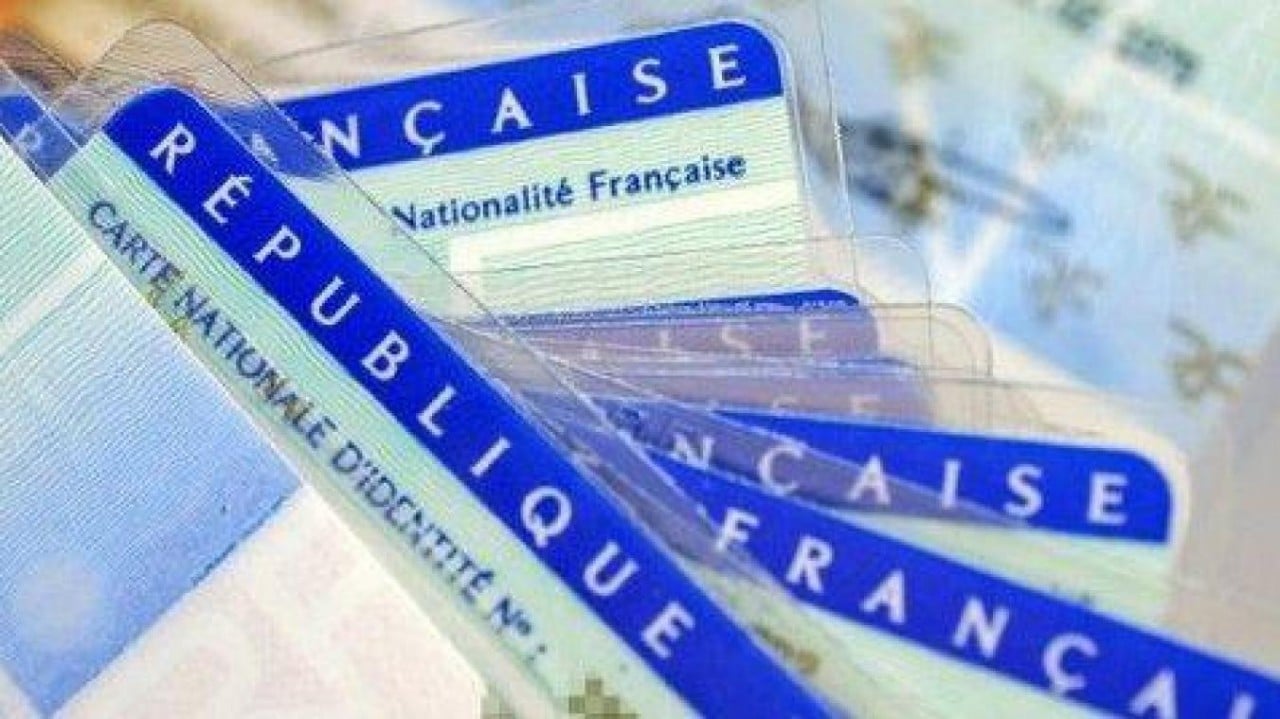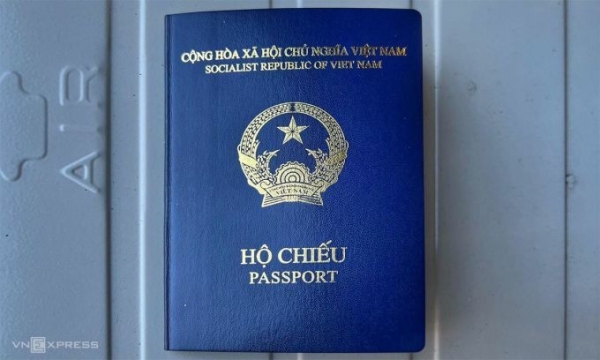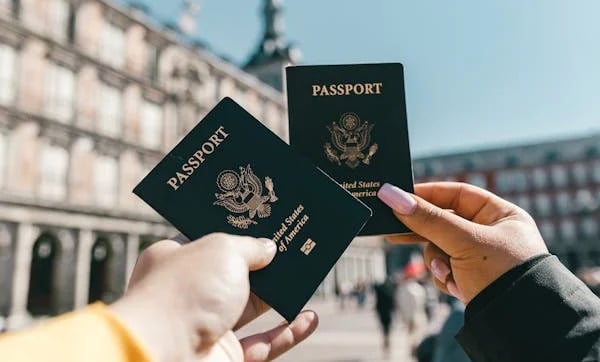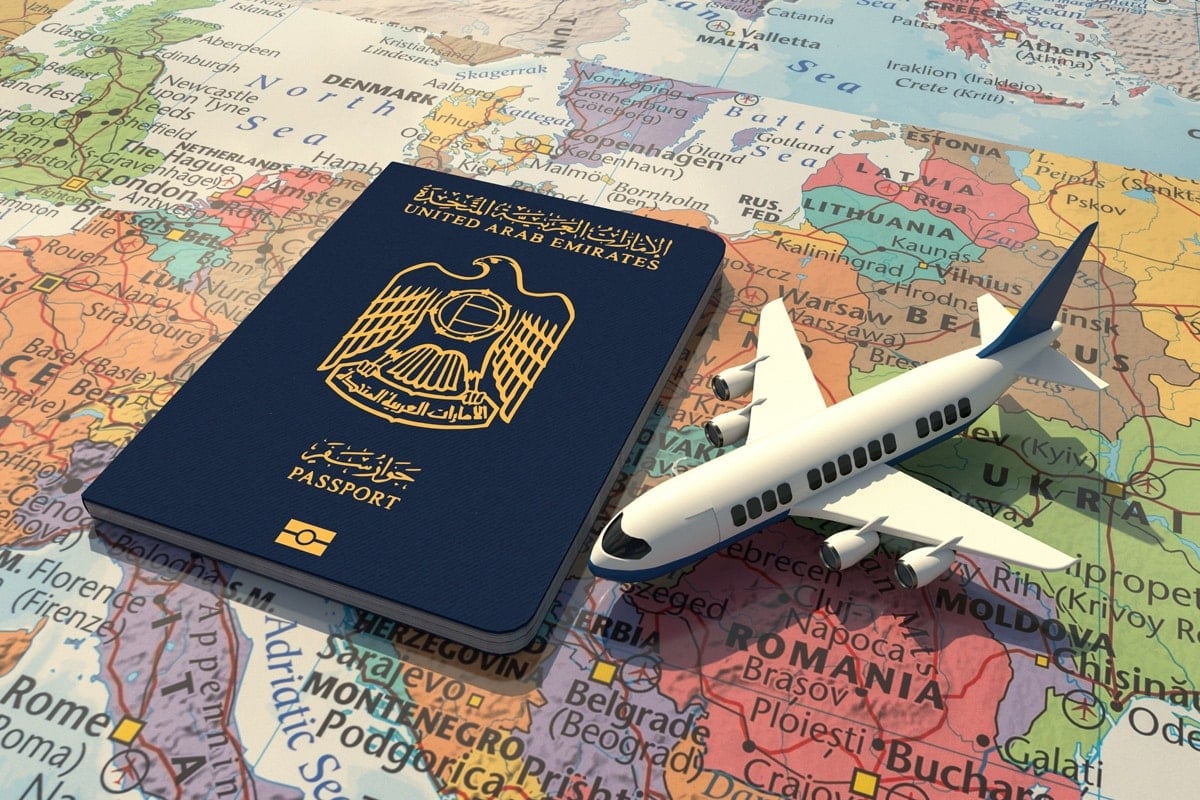 |
| In fact, every French adult has an identity card, and many children are also given one at a young age to facilitate travel within the EU. (Source: AFP) |
France has undergone several changes in its laws and decrees on identity. The first was the law of October 27, 1940, regulating identity cards, which was later amended by the law of March 28, 1942. The two relevant decrees are the Decree of April 12, 1942, on identity cards, and Decree No. 55-1397, dated October 22, 1955, on simplifying administrative procedures. Decree No. 55 was amended by Decrees No. 2010-506 dated May 18, 2010, No. 2016-1460 dated October 28, 2016, No. 2017-1522 dated November 2, 2017 and most recently No. 2021-279 dated March 13, 2021 (standardized according to the regulation of June 20, 2019 of the European Union - EU).
The new French identity card, according to EU standards, is an electronic card, the size of a bank card, valid for 10 years, down from 15 years as before. The card includes the following information: Full name, place of birth, gender, height, nationality, place of residence or residence, date of issue and expiry date, identity number, code for automatic scanners, support number (to contact in case of loss or damage), photo and signature of the person issued. The special feature of the new identity card is that it has a chip containing biometric elements, a digital image of the citizen and two fingerprints.
The part for the automatic scanner includes the following information: surname, first name, date of birth, gender and nationality of the person being issued, country of issue, ID number and validity. In addition to the chip, there is also an electronic code in 2D-Doc format containing the following information: surname, common name or first name (the French have many names and arrange them in order), gender, nationality, place of birth, date of birth, ID number and date of issue.
The identity card is issued to the applicant regardless of age and is issued or renewed by the prefect or deputy prefect. In Paris, the identity card is issued by the police chief. The applicant must prove his or her place of residence with a certificate of home ownership or tax payment, rent receipt, electricity, gas, telephone receipt, home insurance certificate, etc.
The application is submitted to the city hall and is forwarded to the prefect if the applicant resides in the capital of the prefecture, otherwise to the deputy prefect. Once processed, the identity card is returned to the city hall for return to the applicant. In Paris, the application is submitted to the police station and the results are received there. However, citizens have the right to choose any city hall to submit their application without necessarily having to go to the city hall of their place of residence or residence, as long as that city hall is equipped with an information circulation system.
Abroad, citizens can go to the French embassy or consulate general to submit their application and obtain the results. Personal presence is mandatory for fingerprinting. Children and adults in guardianship must also be present in person with a guardian or representative.
For the first time issuance of an identity card, the application includes a passport, a new photo taken within the last 6 months, and proof of residence. In case the passport is expired for more than 5 years, a birth certificate is required. If the applicant was born abroad and has a parent who was also born abroad, proof of French nationality is required. If the applicant does not have a passport, the procedure is the same as for a passport expired for more than 5 years.
For the renewal of identity card, the application includes the old identity card, 1 new passport photo taken within 6 months, proof of residence. If the identity card has expired for more than 5 years, it is necessary to attach a valid passport, otherwise, a new birth certificate issued within 3 months and proof of French nationality if born abroad and has a parent also born abroad.
New and replacement ID cards are issued free of charge (since 1998), except in cases of loss, theft, or failure to recover the old ID card to transfer to a new one, in which case a fee of 25 Euros will be charged.
France does not require citizens to have an ID card and does not specify the age at which they must obtain one, but when they are checked and cannot present their ID card, the process will be very complicated and time-consuming. In addition, without identification papers, individuals will also encounter many difficulties in cases of registering for tests or exams, registering for jobs, voting and registering to run for office, registering for bank accounts, etc.
As a result, practically every French adult has an identity card, and many children are also given one at a young age to facilitate travel within the EU.
With the French identity card, French people can travel without a passport in almost all European countries, except Belarus, the United Kingdom, Russia and Ukraine.
Source


![[Photo] Ceremony to welcome General Secretary and President of China Xi Jinping on State visit to Vietnam](https://vstatic.vietnam.vn/vietnam/resource/IMAGE/2025/4/14/5318f8c5aa8540d28a5a65b0a1f70959)

![[Photo] Prime Minister Pham Minh Chinh chairs conference to review the implementation of Resolution No. 18-NQ/TW](https://vstatic.vietnam.vn/vietnam/resource/IMAGE/2025/4/14/dcdb99e706e9448fb3fe81fec9cde410)
![[Photo] National Assembly Chairman Tran Thanh Man meets with General Secretary and President of China Xi Jinping](https://vstatic.vietnam.vn/vietnam/resource/IMAGE/2025/4/14/4e8fab54da744230b54598eff0070485)

![[Photo] General Secretary To Lam holds talks with General Secretary and President of China Xi Jinping](https://vstatic.vietnam.vn/vietnam/resource/IMAGE/2025/4/14/b3d07714dc6b4831833b48e0385d75c1)
























































































Comment (0)